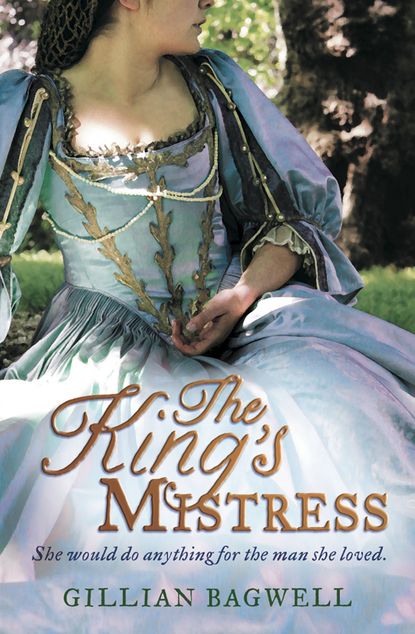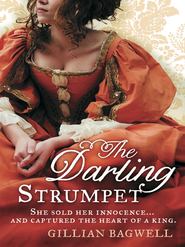По всем вопросам обращайтесь на: info@litportal.ru
(©) 2003-2025.
✖
The King’s Mistress
Настройки чтения
Размер шрифта
Высота строк
Поля
I can’t strap on a sword and a pistol and ride to Worcester with them, Jane thought. But there is something I can do.
“I’ll take care of Mother and Father,” she said. Her brothers and cousin looked at her. “And your family, too, John, if it comes to that. You must go.”
“How can you?” Richard shook his head. “Your love won’t feed them nor yet put a roof over their heads if Cromwell’s men burn the house.”
The reference to burning hung heavy in the air. An earlier Bentley Hall had been burned down seventy years ago by the mayor and members of the corporation of Walsall during a dispute over common rights, and during the wars many houses had been destroyed by troops on both sides.
“I can marry Clement Fisher,” she said.
She felt numb and then consumed by panic, as if her air were being cut off. Don’t be stupid, she told herself, swallowing back tears. If they can risk death on the battlefield or scaffold, how can I hesitate? The men were all staring at her, and she squared her shoulders and swallowed the sobs that were rising to her throat.
“If you go, we will stand firm here at home, whatever comes.”
John came to her and wiped a tear from her cheek with his thumb.
“Thank you, Jane. It’s a weight off my mind to think so. But let’s pray the battle ends with the king on the throne, and it doesn’t come to such a pass.”
RICHARD AND PART OF THE NEWLY FORMED WALSALL ROYALIST REGIMENT set off to join the king on the first of September. Cromwell had arrived at Red Hill outside the city walls of Worcester, his New Model Army augmented by local militias from across England, and the battle must begin any day. On the third of September, John and Henry rode northward with another hundred men and horses. The house seemed eerily empty and quiet as the family gathered for dinner.
“It was a year ago today that young King Charles met Cromwell’s forces at Dunbar,” Thomas Lane commented, and Jane shivered, recalling her despair at the news of the terrible rout, and Cromwell’s subsequent subjugation of Scotland.
Jane felt restless all afternoon. She tried to read but found no pleasure in it and could not make herself sit still, so she gave up and went outside. Clouds hung overhead and the air seemed to crackle with tension. She felt lonely, but there was no one to talk to, no one who would satisfy her longing for easy companionship. Maybe she would stay with Ellen for a month or more, she thought. Maybe she would feel happier with a change of scene. And perhaps, a voice at the back of her head whispered, perhaps you will meet a man there.
JANE LAY AWAKE THAT NIGHT, HER MIND AND SPIRIT DISTURBED. SHE had only begun to drop off to sleep when she was startled into wakefulness by the furious pounding of horses’ hooves and dogs barking. She ran to the window. There was no moon, and by the silver starlight she could barely make out fleeting shapes in the blackness as several men on horseback pelted into the yard as though the forces of hell were after them.
“All of them into the stable!” It was John’s voice calling out hoarsely.
“Quick, man, quickly, away!” And that voice was Henry’s, low and urgent. Something must be terribly wrong, that they should be back so soon.
Her heart pounding, Jane threw a heavy shawl around her shoulders and ran downstairs, meeting her parents, Athalia, Withy, and Withy’s husband, John Petre, as they converged in the kitchen just as John slammed the door shut and dropped the bar into place. Henry had collapsed onto a stool at the great table, and was slumped forward, his breath coming in ragged gasps.
“What is it, John?” Thomas Lane asked, striking a flint and lighting the lantern. Its blue glass panes bathed the kitchen in a spectral glow.
“There’s been a great defeat at Worcester,” John said, his face haggard. “We got no further than Kidderminster before we began to meet soldiers fleeing. We left it too late to join the king. The battle started this morning.”
“Richard!” Jane’s mother shrieked. “What of Richard? Is he with you?”
“Alas, no,” John said. “We turned back as soon as it was clear there was no longer a battle to go to.”
“Cromwell’s men are scouring the country for the king’s soldiers even now,” Henry said. “It was all we could do to get back before we met any of them.”
“And the king?” Jane cried. “What of the king?”
John and Henry exchanged glances.
“We heard that he was killed,” John said heavily. “But also that he had been taken prisoner.”
Jane’s heart sank. If young King Charles had been captured, he would surely be executed as his father had been, and the Royalist cause would be lost indeed.
“Everything is chaos.” Jane thought Henry seemed near tears. “All that is certain is that the king’s forces were greatly outnumbered, and the day was lost after fierce and terrible fighting.”
Outside a gust of wind shook the trees, and Jane heard the patter of rain against the window, invisible against the icy blackness.
“I’ll go into Wolverhampton for news tomorrow,” Thomas said at last. “Though I fear me none of it will be good.”
ALL THROUGH THE NIGHT AND INTO THE NEXT DAY IT RAINED. IN the grey light of dawn, Jane stood huddled in her shawl, staring out an upstairs window. A quarter of a mile away, the Wolverhampton Road was thick with the traffic of the disaster. Wounded men limped or were carried by their fellows. The rain beat down relentlessly, turning the road into a sucking stew of mud. Jane hoped against hope that she would see Richard walking up the lane to the house, and prayed that he was alive and unwounded. She turned as John came to stand beside her, unshaven and with dark circles under his eyes. She was startled to see how grey was the stubble on his cheeks.
“Can we not help those poor men?” she asked. “Give them water and food, at least? Perhaps somewhere someone is doing the same for Richard.”
In a short time the bake house behind Bentley Hall was bustling as servants dispensed water, hot soup, bread, and ale to the stream of refugees, along with bread, cheese, sausages, and apples to carry away with them. In the kitchen, the women of the house did what they could for the wounded. Washing away the blood and mud and binding the men’s wounds with strips of linen and herbal decoctions to slow the bleeding and soothe the pain made Jane feel that she was making some difference, and it gave her the opportunity to ask about Richard.
“Richard Lane? No, Mistress, I don’t know him.” The young soldier, one arm in a bloody sling and his face grey with pain and dirt, shook his head. Jane closed her eyes and tried not to imagine Richard’s body stiffening in the cold rain.
“Though to be sure,” the lad continued, gulping water from a tin cup, “by the end it was like hell itself, and I would have been hard-pressed to know what happened to any man.”
“Tell me,” Jane begged. She sat beside him on the bench next to the big kitchen table. Across from her, Nurse was sponging blood from the ragged scrap of flesh that was all that remained of the right ear of a redheaded boy who was doing his best not to cry.
“I was just to the north of Fort Royal, up on the hill,” the young soldier said, “and when the rebels captured the fort, we were cut off from the rest of the king’s forces. Outflanked, and trapped outside the city walls. We tried to get to St Martin’s Gate, but Cromwell’s men—the Essex militia it was—came after us.”
He shook his head, as if trying to puzzle something out, and his voice was hollow as he continued.
“There was no question of capture. They just wanted to slaughter all of us they could. Of course, once they overran the fort, they had our cannons. Men were falling all about me and the dead were huddled in piles against the city walls. By some miracle I reached the gate and got through.”
A heavy rumble of thunder sounded, rattling the windows, and the rain seemed to renew its fury.
“And then?” Jane prompted gently.
“All was confusion. The enemy must have broached the other gates of the city, for they seemed to be coming from all directions. They were riding men down, cutting them down as they fled. I saw the king almost trampled by our own horse, running in so great disorder that he could not stop them, though he used all the means he could.”
“Alas,” Jane said. “Would they not stand and fight?”
“I’m sure most did as well as they were able, Mistress. But by that time even those who still had muskets had no shot, and were trying to hold off the enemy horse with fire pikes—burning tar in leather jacks fixed to the ends of their pikes. Dusk was falling and with it the end of any hope. I fled out the gate, my only thought to head northward.”
He drained the last of the water and stood, slinging his canvas sack on his shoulders.
“I thank you for your kindness, Mistress. And I hope your brother is safe and on his way home.”
Jane heard similar stories throughout the day. The king’s army had known to begin with that they were outnumbered, but fought with the desperation born of the knowledge that today was their only hope. At the fort, at the city walls and gates, in the streets, it had been brutal, exhausting, confusing mayhem, ending in defeat and despair.
“We were beat,” a grizzled sergeant said. “It was not for want of spirit, nor for want of effort by the king. Certainly a braver prince never lived.”
“What does he look like, the king?” Jane asked.
The sergeant blew out his cheeks. “Like a king ought to, you might say. I was proud to look on him, and to be sure, I could tell that all around me felt the same.”
Jane thought of Kent in King Lear. You have that in your countenance which I would fain call master … Authority.
“What else?” she asked.






